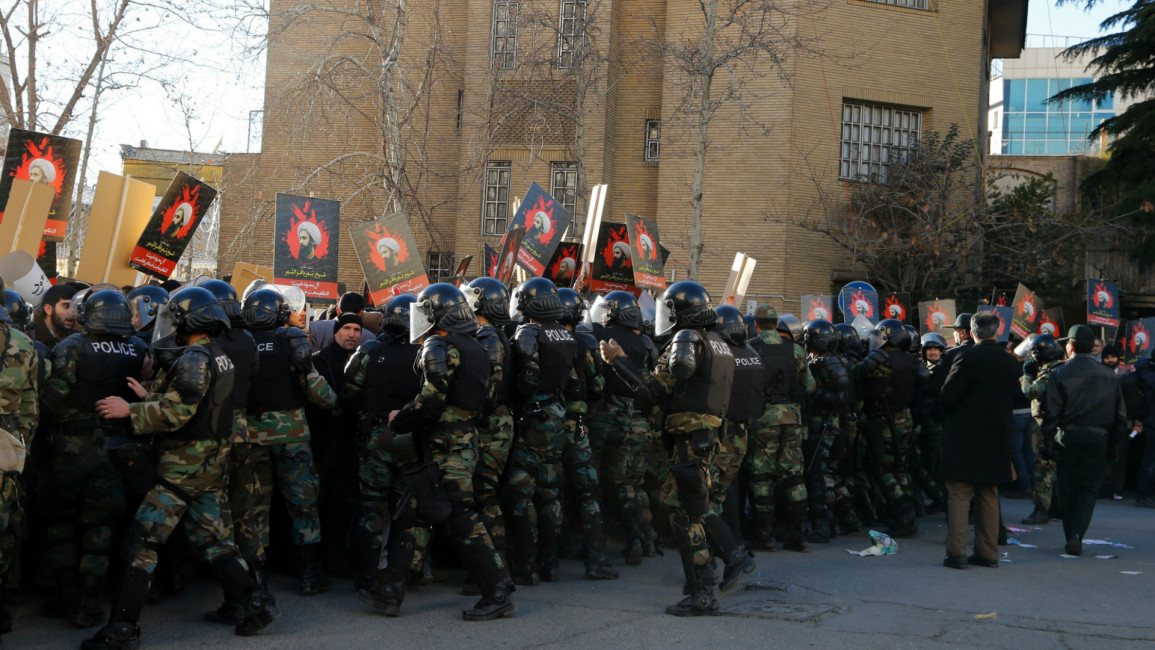Iranian president seeks punishment for Saudi embassy attackers
"By punishing the attackers and those who orchestrated this obvious offence, we should put an end once and for all such damage and insults to Iran's dignity and national security," Rouhani said in a letter published by Iranian state agency IRNA.
Within hours of the embassy attack, Rouhani called the violence "totally unjustified" but accused Saudi Arabia on Tuesday of focusing attention on the incident to "cover its crime" of executing prominent Shia cleric Nimr al-Nimr.
Rouhani's new comments seem to be aimed at reducing the tension with Saudi Arabia and other Arab countries.
Saudi Arabia severed all ties with Iran and several Arab countries followed suit in the past few days.
"We seek good relations with all countries. We condemn the attack on Saudi embassy & consulate. All political missions should be protected," Rouhani tweeted on his English Twitter account.
Twitter Post
|
'Adding fuel to fire'
At a press conference in the capital on Wednesday, Foreign Minister Mohammad Javad Zarif said Riyadh must end prolonged efforts to confront Iran.
"For the past two-and-a-half years, Saudi Arabia has opposed Iran's diplomacy," he said at the press conference with Iraqi Foreign Minister Ibrahim al-Jaafari on Wednesday.
"This trend of creating tension must stop. We need to stand united... and stop those who are adding fuel to the fire," he added.
The spike in tensions comes after Iran last year secured a historic nuclear deal with world powers led by the United States, causing major concern in longtime US ally Riyadh.
That deal, when finally implemented, will end sanctions on Iran's oil and gas industry that could see the Islamic republic challenge Saudi Arabia's role as the Middle East's dominant energy and economic power.
Tensions
Nimr's death sparked demonstrations in many countries including Iran, where protesters stormed and set fire to the Saudi embassy in Tehran as well as the kingdom's consulate in second city Mashhad.
Riyadh cut ties with Tehran in response and was joined by some of its Sunni Arab allies including Bahrain and Sudan.
The United Arab Emirates also downgraded relations with Iran and Kuwait recalled its ambassador.
Staff at Iran's embassy in Riyadh and its consulate in Jeddah flew home on Wednesday, Saudi state news agency SPA reported.
Iran's state broadcaster IRIB said a plane carrying 54 Iranian diplomats and their families had landed at Tehran’s Mehrabad Airport.
The dispute has raised fears of an increase in sectarian tensions in the Middle East that could derail efforts to resolve pressing issues including the wars in Syria and Yemen.
The United Nations and Western governments have expressed deep concern, urging both sides to reduce tensions.
US Secretary of State John Kerry has made repeated calls to both Iranian and Saudi leaders.
"He is urging calm. He is stressing the need for dialogue and engagement, and thirdly, reminding that, again, there's lots of work to be done in the region," State Department spokesman John Kirby said on Tuesday.
Saudi Arabia and Iran are on opposing sides in some of the Middle East's worst conflicts.
In Syria, Iran is supporting the government of President Bashar al-Assad against rebel groups, some backed by Saudi Arabia.
And in Yemen, Riyadh is leading a military intervention against Iran-backed Shia rebels who have seized control of large parts of the country.



